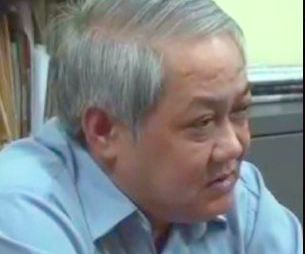MANILA, Philippines — Dynasties’ continuing domination of the country’s political system is a “disease” that will result in more warlords and economic carpet-bagging by the ruling clans, according to an analyst from an established political think-tank.
Ramon Casiple, executive director of the Institute of Political and Electoral Reform, said the uncontrolled proliferation of political dynasties has been betraying the severe weaknesses of the political party system in the country.
“There simply are no checks and balances in place to curb or even guide the self-serving political agenda – and by extension the carpet-bagging economic agenda of dominant political clans. At worst, these clans turn into warlords with control over territorial fiefs and their power protected by political violence, electoral fraud, and vote-buying,” Casiple said on his blog.
The filing of candidacy for the 18,053 elective offices – from senators to municipal councilors – ended Friday with the majority of key positions to be contested by members, loyalists or affiliates of dominant political clans.
Casiple said the Senate race has been “heavily affected with the dynastic disease,” with almost all candidates of the Liberal Party coalition and the United Nationalist Alliance (UNA) tracing their antecedents and credentials to political families.
He said at least 18 candidates for senator come from political families, among them the Escuderos, Aquino-Cojuangcos, Cayetanos, Estrada-Ejercitos, Madrigals, Gordons, Magsaysays, Villars, Angaras, Binays and Enriles.
At the local level, political clans and dynasties are all over the political landscape – from the Marcoses in Ilocos Norte to the Dutertes of Davao City. According to Casiple, “only a sprinkling” of candidates are non-dynasty or non-traditional politician, the most notable of whom are the two Catholic priests on leave who are running for governorship – Fr. Eduardo “Among Ed” Panlilio in Pampanga and Bicol Regional Development Council co-chair Fr. Leo Casas in Masbate.
The weaknesses are “starkly manifested” in the presence in the Liberal Party-Nacionalista Party and the United Nationalist Alliance slates of common candidates, newly sworn-in members, turncoats and candidates whose spots were reserved by their fathers who are party-leaders.
Despite denials by party-leaders that their arrangements for 2013 midterm polls are a prelude to the 2016 presidential race, Casiple believes next year’s election campaign will be a “proxy war.”
“All roads now lead to Malacañang and President Aquino. Of course, the political configuration will change in the run-up to the 2016 elections. Meanwhile, the real–but covert–fight in the 2013 elections are between the would-be presidential aspirants in the 2016 presidential elections. As such, what we are witnessing is a proxy war,” he said.
With the major political parties supportive of Aquino and with no strong political opposition, Casiple said political dynasties would continue to thrive.
“Political dynasts sit comfortably and go with the tide of the president’s electoral wishes even as they profess support to all sides of the presidential contest. They are survival specialists, after all,” he said.
Former President Fidel V. Ramos, speaking to reporters Saturday at Ninoy Aquino International Airport upon arriving from Singapore, said he still believed that Filipinos would reject political dynasties.
“How many husbands and wives, fathers and sons, fathers and daughter, brothers and sisters, in-laws and in-laws, cousins and siblings are running for public office? Is this the way Filipinos want themselves to be governed?” he asked.
Since Congress has so far failed to enact a bill against “dynastism,” Ramos said only a specific amendment to the Constitution would definitely stop the practice.
